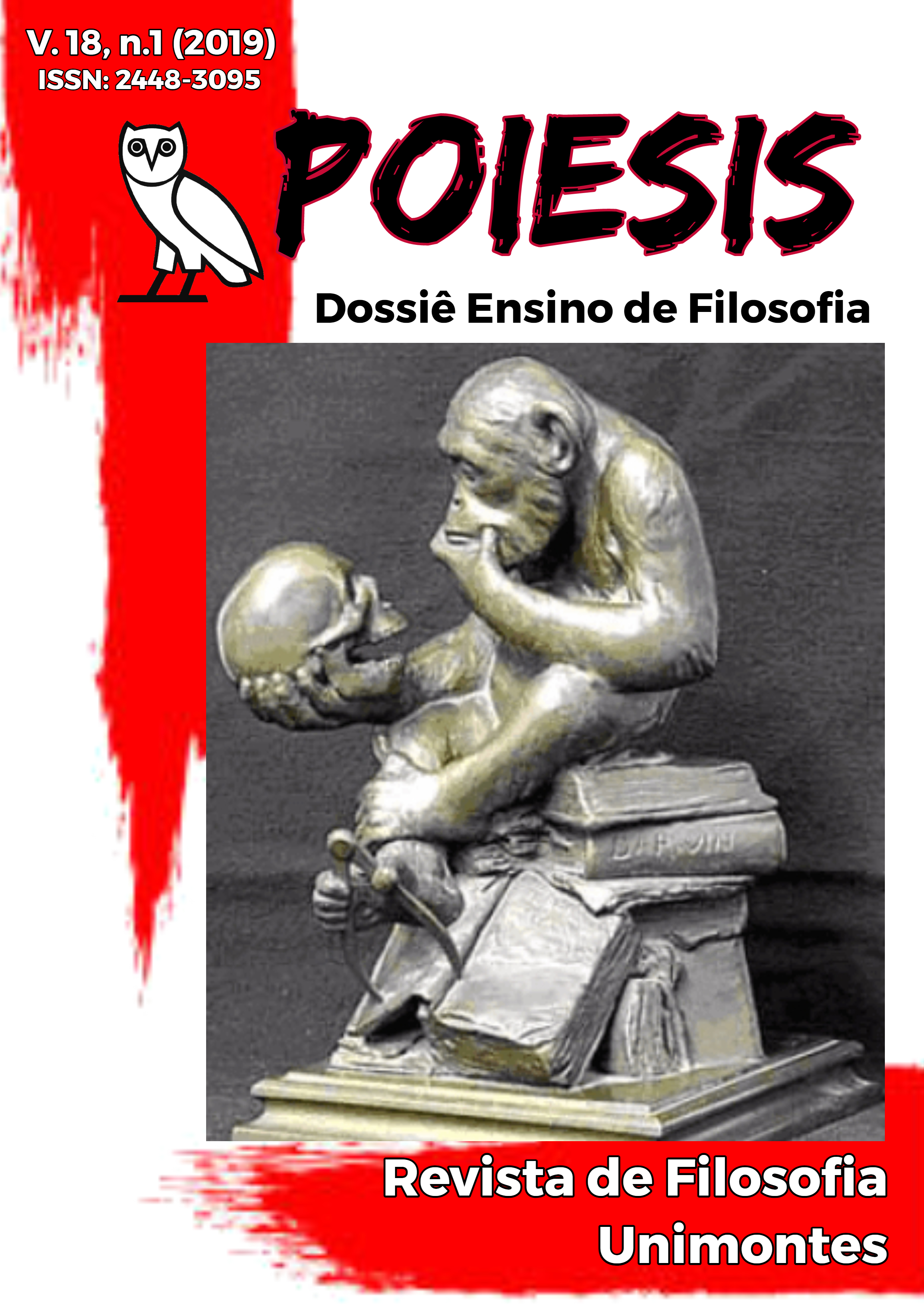Digital language and content production
Creating spaces for authorial writings in high school
Keywords:
Digital language. Teaching methodology. Content production. Author writing.Abstract
It is a fact that the power of New Information and Communication Technologies (NTICs) contributes greatly to increased interaction between young people and people in general. The digital language used as a form of communication, for most users, is just signs and symbols or even words that reproduce content that is already available on the Internet. Through research conducted at the Professor Plínio Ribeiro State School in Montes Claros-MG, we found that many students spend most of their time connected to the internet on games or social networks. Most of the time they use these technological resources indiscriminately exploit the virtual environment without reflecting on the content to which they are exposed. From the results of this research we believe it is necessary to adopt a teaching methodology and develop an action plan to be implemented in the classroom, in an attempt to improve our pedagogical practice. With this we developed an Educational Intervention Project (PEI) with the objective of promoting and encouraging the authorial writing by the students in philosophy classes. This is the creation of a Magazine of Philosophy - New Ideas for High School, which aims to publish and share content produced by the high school students of our school. In this sense, by using new technologies as tools in the education system, we are making use of an instrument that has great potential and that can contribute to the formation of these young people, also developing their creativity and their perception of reality. Finally, it is a way of reinterpreting, re-meaning and better appropriating these new features.
Downloads
References
BRASIL. Ministério da Educação, Secretaria de Educação Média e Tecnológica. Lei de Diretrizes e Bases da Educação Nacional. Lei número 9394, 20 de dezembro de 1996.
BRASIL. Ministério da Educação, Secretaria de Educação Média e Tecnológica. Parâmetros Curriculares Nacionais: Ensino Médio. Brasília: MEC, 1999.
CAMPANER, Sônia. Filosofia; ensinar e aprender. São Paulo: Saraiva, 2012.
CARRIJO, Alessandra da Silva. De como deve ser tratada a questão do Ensino de Filosofia. Saberes, Natal/RN, v. 2, n.esp, jun. 2011. Disponível em: . Acesso em 20 de set.2017.
CARVALHO, M.; BENEDITO de Almeida Junior, J.; Gontijo, P. Filosofia e Ensinar Filosofia. São Paulo: ANPOF, p. 9-22, 2015. (Coleção XVI Encontro ANPOF).
DELEUZE, G. & GUATTARI, F. O que é a filosofia? Trad. Bento Prado Jr. e A. A. Muñoz. São Paulo: Editora 34, 1992.
DIAS, Cláudia Augusto. Hipertexto: evolução histórica e efeitos sociais. Ciências da informação, Brasília, vol. 28, nº. 3. Set. /Dez.de 1999. Disponível em: <http://www.scielo.br/pdf/ci/v28n3/v28n3a4.pdf.> Acesso em: 25 de out. de 2017.
GABRIEL, Fábio Antônio. A aula de Filosofia enquanto experiência filosófica: possibilitar ao estudante de Filosofia “criar conceitos” e ou “avaliar o ‘valor’ dos valores”. 191 f. Dissertação (Mestrado em Educação) - Universidade Estadual de Ponta Grossa, Ponta Grossa, 2015.
GALLO, Silvio. Metodologia do ensino de filosofia: uma didática para o Ensino Médio. Campinas: Papirus, 2012.
GELAMO, R.P. O ensino da filosofia no limiar da contemporaneidade: o que faz o filósofo quando seu ofício é ser professor de filosofia? São Paulo: Editora UNESP; São Paulo: Cultura Acadêmica, 2009. Disponível em: <http://books.scielo.org> Acesso em: 20 de outubro de 2018.
JAPIASSÚ, Hilton; MARCONDES, Danilo. Dicionário Básico de filosofia. Rio de Janeiro: Zahar, 2006.
JOHNSON, S. Cultura da Interface: como o computador transforma nossa maneira de criar e comunicar. Rio de Janeiro: Jorge Zahar, 2001.
KENSKI, Vani Moreira. Educação e Tecnologias: o novo ritmo da informação. Campinas/SP: Papirus, 2007.
LÉVY, Pierre. A inteligência coletiva: por uma antropologia do ciberespaço. 4ª. ed. São Paulo: Loyola, 2003.
___________. As tecnologias da inteligência: o futuro do pensamento na era da informática. 2ª ed. Rio de Janeiro: Editora 34, 2010a.
___________. Cibercultura. Trad. Carlos Irineu da Costa. São Paulo: Editora 34, 1999.
___________. Cibercultura. Trad. Carlos Irineu da Costa. 3ª ed. São Paulo: Editora 34, 2010b.
___________. O Que é o virtual. São Paulo: Ed. 34, 1996.
PRIOSTES, Cláudia. O Adolescente e a Internet: Laços e Embaraços no Mundo Virtual. São Paulo: Editora Edusp, 2016.
RECUERO, Raquel. “Diga-me com quem falas e dir-te-ei quem és”: a conversação mediada pelo computador e as redes sociais na internet. Revista Famecos: mídia, cultura e tecnologia. Porto Alegre, vol. 16, nº.38, abril de 2009. Disponível em: <http://revistaseletronicas.pucrs.br/ojs/index.php/revistafamecos/article/view/5309/3879.>Acesso em 25 de out./ 2016.
RODRIGO, Lídia Maria. Filosofia em sala de aula: teoria e prática para o ensino médio. Capinas: Autores associados, 2009. (Coleção formação de professores).
RODRIGUES, Valter Ferreira. O ensino de filosofia como experiência crítico-criativa do filosofar: limites e possibilidades. 2014. 234f. Tese (Doutorado) - Universidade Federal da Paraíba, Faculdade de Educação, João Pessoa, 2014.
ROUSSEAU, Jean-Jacques. Ensaio sobre a origem das línguas. Trad. Lourdes S. Machado. São Paulo: Nova Cultural, 2005. (Os pensadores).
SILVA, Solimar Patriota, PEÇANHA, Ana Paula Bahia. A produção textual e as novas tecnologias: o uso de blogs para a escrita colaborativa. Revista Escrita. Rio de Janeiro, Ano 1, nº 15, 2012. Disponível em: <http://www.maxwell.vrac.puc-rio.br/20856/20856.PDF.> Acesso em 25 de out. de 2016.
Downloads
Published
How to Cite
Issue
Section
License
Copyright (c) 2021 Revista Poiesis

This work is licensed under a Creative Commons Attribution-NonCommercial-NoDerivatives 4.0 International License.





.png)

